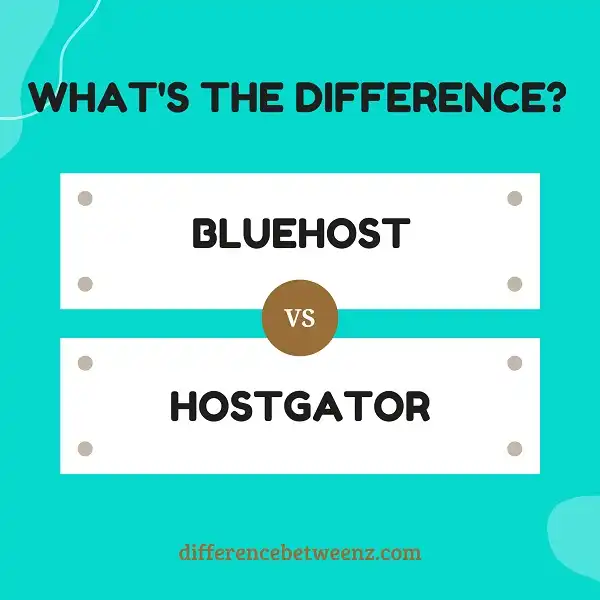If you’re looking for a reliable and affordable web hosting service, you’ll likely consider Bluehost or Hostgator. These two companies are some of the most popular hosts on the market, but they offer different features and pricing options. In this article, we’ll compare Bluehost and Hostgator to help you decide which one is best for your website.
What is Bluehost?
Bluehost is a web hosting company headquartered in Utah. It was founded in 2003 and provides both shared and dedicated hosting services. Bluehost is one of the largest web hosts, serving over 2 million customers worldwide. Bluehost offers a variety of features, including a free domain name and free SSL certificate. Bluehost also has 24/7 customer support and a money-back guarantee. Bluehost is a great option for those looking for a reliable and affordable web host.
What is Hostgator?
Hostgator is a web hosting company that provides users with various services such as shared hosting, reseller hosting, VPS hosting, and dedicated servers. The company was founded in 2002 and is headquartered in Austin, Texas. Hostgator offers a wide range of features and prices that make it a popular choice for both individuals and businesses. In addition to its affordable rates, Hostgator also offers 24/7 customer support, a 99.9% uptime guarantee, and a 45-day money-back guarantee. With its combination of price, features, and support, Hostgator is an excellent choice for those looking for a web hosting company.
Difference between Bluehost and Hostgator
Bluehost and Hostgator are two of the most popular web hosting providers on the market. But what exactly sets them apart? Bluehost is known for its affordability and wide range of features, while Hostgator is known for its excellent customer support.
- However, both Bluehost and Hostgator offer a variety of plans to suit different needs, so it’s important to compare them side by side before making a decision. Here’s a closer look at the key differences between Bluehost and Hostgator.
- Bluehost offers a wider range of plans than Hostgator, including shared hosting, WordPress hosting, VPS hosting, and Dedicated servers. This means that Bluehost is a good option for businesses of all sizes.
- In addition, Bluehost offers a free domain name for the first year of service, while Hostgator does not. Bluehost also has slightly cheaper entry-level prices than Hostgator.
- However, keep in mind that Bluehost doesn’t offer any monthly payment options, so you’ll need to pay for your plan upfront. In contrast, Hostgator offers monthly payment options for all of its plans. Hostgator also has more robust plans than Bluehost, making it a better choice for businesses with high traffic or complex websites.
For example, Hostgator’s Business plan includes unlimited storage and bandwidth, as well as a free SSL certificate and dedicated IP address. So if you’re looking for a comprehensive web hosting solution, Hostgator is a better choice than Bluehost.
Conclusion
If you are still undecided on which hosting company to choose, we hope this article has helped clear up some of the differences between Bluehost and Hostgator. Both companies have their pros and cons, but in our opinion, Bluehost is a better choice for most small businesses.


